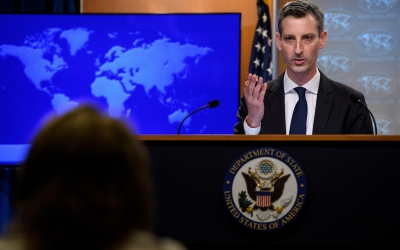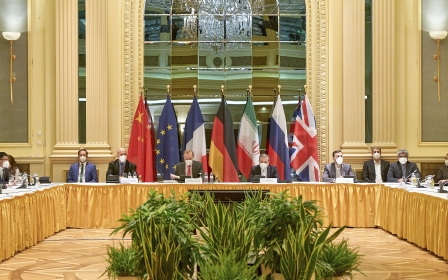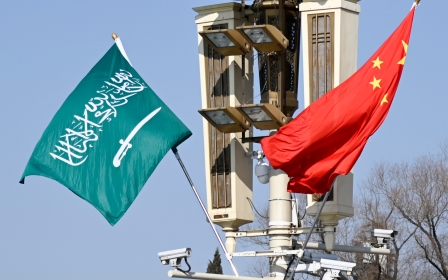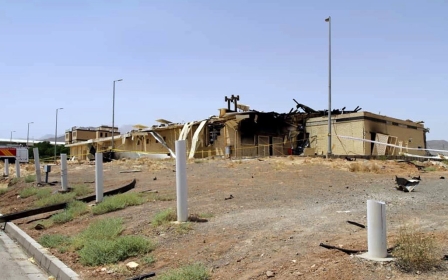US reportedly open to lifting terror sanctions on Iran central bank
The Biden administration has signalled it is open to lifting sanctions against key elements of Iran's economy, including terror sanctions against its central bank, its oil companies, and steal and aluminum sectors, the Wall Street Journal reported, citing people familiar with the matter.
In addition to lifting those designations, the newspaper reported that Washington may give sanctions relief for textiles, autos, shipping, and insurance, according to a senior European official.
The report comes as the second round of ongoing nuclear negotiations in Vienna wrapped up for this week. The next round is set to resume next week.
On Wednesday, a senior State Department official said the US provided Iran with examples of sanctions Washington would negotiate to secure a deal.
"I think they have a pretty clear sense at this point about our view about the sanctions that we're going to have to lift," and those "that we would not lift", the official said during a briefing.
The official did not comment on the specific sanctions Washington was willing to lift, but noted a third category of designations making negotiations difficult: the terrorism sanctions imposed on Iranian economic entities by former President Donald Trump.
The official said the administration was reviewing to see which of these were "legitimately or not legitimately imposed".
Iranian President Hassan Rouhani has lauded the progress of the talks, saying on Tuesday that negotiations to revive the nuclear deal have advanced to about "60, 70 percent".
Mikhail Ulyanov, Russia's ambassador to the UN atomic agency and chief negotiator at the talks, told the Journal that negotiations could be complete by late May, when an agreement for continued International Atomic Energy Agency oversight of Iran's nuclear activities would expire.
Not all will be lifted
Still, despite the progress made, officials have said that some designations are likely to prove contentious, such as the "foreign terrorist organisation" designation of Iran's Islamic Revolutionary Guard Corps and the terror listing of Supreme Leader Ali Khamenei.
The US is not currently considering lifting its terror sanctions on the IRGC, the people familiar with the matter told the newspaper.
An Iranian official told the Journal that a return to the nuclear agreement would only end 800 new US sanctions and terror designations, half of the 1,500 sanctions Iran estimates have been imposed.
The Joint Comprehensive Plan of Action (JCPOA) signed by the US, Iran and world powers in 2015 lifted sanctions against Tehran after it scaled back its nuclear programme.
In 2018, the Trump administration withdrew from the nuclear agreement and reimposed crippling sanctions on Tehran. Iran initially continued to abide by the deal but has reduced some of its commitments since 2019.
Last week, Iranian officials said they were pushing uranium enrichment to 60 percent purity, up from the 3.67 percent that had been agreed upon in the JCPOA.
The move was in response to an attack at Iran's Natanz nuclear facility that Tehran blamed on Israel.
Middle East Eye delivers independent and unrivalled coverage and analysis of the Middle East, North Africa and beyond. To learn more about republishing this content and the associated fees, please fill out this form. More about MEE can be found here.





